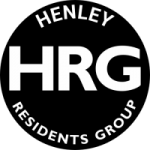Understanding residents’ views on expenditure priorities
At the beginning of September, Henley Residents Group surveyed[1] Henley residents for their view on priorities for grant funding by Henley Town Council. Over 120 residents[2] responded.
As Councillors Ian Reissmann and Jane Smewing said in their introduction to the survey “funding decisions made by Oxfordshire County Council (and other bodies) have meant some services for Henley Residents paid for by the County face being cut back” and they asked for views on how the Town Council how they should pay for the costs of these extra grants, if the Town Council decided to cover any deficiencies.
Whilst 26% said they were not prepared to pay any increase on the current precept on Band D households paid to the Town Council (£87 per household each year – £1.67 per week), the overall response indicated a willingness to pay a weighted average increase[3] of £6.27 per household (12p per week). Women were willing to pay slightly more than men and the younger[4] slightly less.
Also the survey asked for views on what should be the top two and the bottom two priorities[5] for funding from the Town Council over the next two years.
Overwhelmingly, the top two priorities were seen to be “care for disadvantaged local children and young people” (with nearly 55% in favour) and “provision for those local residents with mental health issues (all ages including dementia)” (with nearly 53% in favour). However, women were more favourable towards these two priorities than men, some of whom were inclined to support educational, museum and sports activities (with the younger generation also being more inclined to support sporting activities).
The bottom two priorities were also overwhelmingly seen to be grants for “arts activities” and for “sports activities”. These priorities were of a similar ranking for male and female respondents and for younger and older respondents, although the younger respondents were less inclined to be unfavourable to them than the older respondents, and saw “support for local buses” as featuring as one of the “bottom two priorities” along with “arts and sports activities”.
Respondents were able to make their own comments if they wished. These included “Henley is in desperate need of facilities”; “Unless they are helped, disadvantaged people will continue to be disadvantaged”; “Provision for mental health appears to be limited but much needed”; “Our youth are our future”; “Parking and rubbish collection” ; “Less spending on flowers, more spending on people”; “Make sure our young people stay around Henley”; and “Money allocated to improve pavements and roads on Gainsborough – Henley should not forget its communities include those on lower incomes”. There was also one respondent that asked “Who is Oxford County Council” which highlights that Henley’s funding comes from, three councils – the County, South Oxfordshire and Henley Town, with differing responsibilities for each.
Councillors Reissmann and Smewing commented that “We wanted to hear residents’ views about their priorities for grant making – there has been inadequate consultation with residents in the past. Their views are all the more important given the cuts in grants being made by the County which affect some organisations in Henley. The Town Council needs to consider whether it could fund some of the organisations suffering these cuts, and if it were to do so, how it could fund these grants. The survey is a helpful tool for us in making these decisions”.
Issued by David Feary on behalf of Henley Residents’ Group – Contact 07813 400803
24th October 2017
Notes for editors:
- The survey was undertaken online https://docs.google.com/forms/d/e/1FAIpQLSdv_MoMVZuDF1lBA30FrCKqWklm_SNPzQ4CoTavg39JK44dNQ/viewform and was communicated by social media including emails. Responses were split roughly 50% each for men and women.
- 123 residents responded by 23rd October, out of an electorate of 8,742 (1. 4%).By comparison, Yougov’s national survey by on 21st August 2017, enquiring who the British electorate thought would make the best Prime Minister, was based on 1,664 respondents (out of a national electorate of around 46 million (0.004%). A previous survey by HRG in March/April 2017 received around 60 responses.
- The response options per annum were “No increase at all”, “£1”, “£2-10” and “£11-20”.
- Age options were “18-30”, “31-45”, “46-59” and “more than 60”. “Younger” is classified as “18-45”and “older” “46 and above”.
- The alternatives for priorities were “Grants to local sporting activities”, “Provision for local elderly residents’ social activities”, “Grants for local educational, library or museum services”, “Care for disadvantaged local children and young people”, “Support for local bus services”, “Grants to local arts activities” and “Provision for those local residents with mental health issues (all ages including dementia)”



